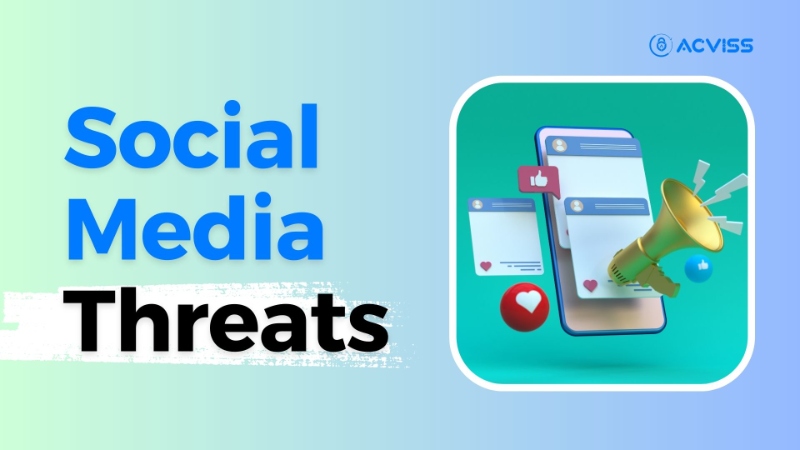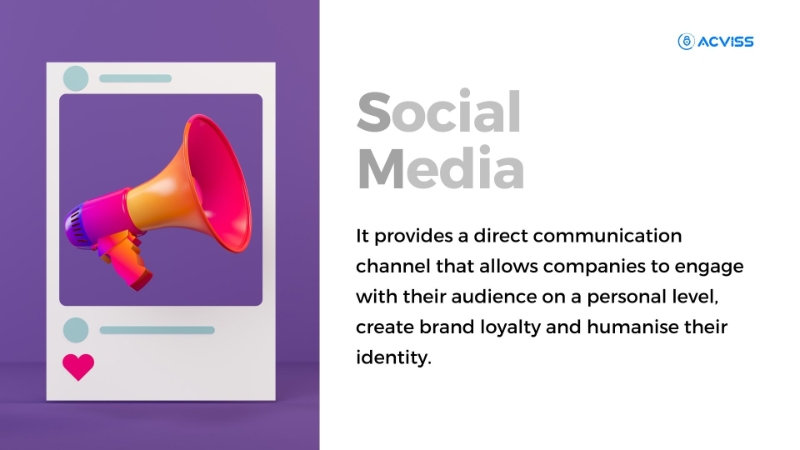Social Media Marketing: The Risks and How to Navigate Through Them!

Today the lines between the physical and virtual worlds are becoming increasingly blurred and maintaining brand integrity is a priority concern for businesses. With the proliferation of social media platforms, the way brands interact with their audience has evolved drastically. While social media offers unprecedented opportunities for engagement and growth, it also presents a range of emerging threats that can compromise brand integrity if not navigated with caution.
The Power of Social Media
Social media has transformed the way brands connect with consumers. It provides a direct communication channel that allows companies to engage with their audience on a personal level, create brand loyalty and humanise their identity. However, this power is a double-edged sword. While social media can help brands flourish, it can also lead to significant damage if not managed effectively.
What are the risks?
1. Negative Publicity and Reputation Damage:
One of the most immediate threats brands encounter on social media is negative publicity. A single tweet, post or comment can go viral within minutes, potentially causing irreparable damage to a brand's reputation. Whether it's a customer complaint, a product-related issue, or even a social or political controversy, brands must be prepared to respond swiftly and adeptly to mitigate the impact.
2. Cyberattacks and Data Breaches:
Brands store a wealth of sensitive customer information in their systems, making them attractive targets for cybercriminals. A data breach can not only compromise customer trust but also result in legal and financial consequences. Hackers may exploit vulnerabilities in social media accounts to gain unauthorized access and distribute malicious content.
3. Fake Accounts and Impersonation:
The rise of fake social media accounts and impersonation poses a significant threat to brands. These fraudulent accounts can spread misinformation, engage in phishing activities, or damage the brand's reputation by posting inappropriate content. Scams relating to brand impersonations are on the rise and the loss it causes is gigantic.
4. Influencer Mismanagement:
Collaborating with influencers is a popular marketing strategy, but it comes with its own set of risks. An influencer's actions or statements can reflect on your brand, and their behaviour off-platform can also impact your reputation. Choosing the right influencer is key also, keep in mind the fake influencer plague ruining the market.
5. Social Media Crisis Escalation:
What starts as a small issue can quickly escalate into a full-blown crisis on social media. Whether it's a product recall, a PR misstep or a viral controversy, brands need to be prepared to handle crises effectively to prevent long-term damage.
6. Public Backlash and Cancel Culture:
In the age of cancel culture, brands are under constant scrutiny for their actions, statements, and associations. A single misstep can lead to widespread public backlash and calls for boycotts. Recently the tech giant Apple has been receiving a lot of heat after admitting that they had been slowing down the older Apple devices each year. And the court has come to a verdict that Apple has to pay back the customers for damaging their property.
7. Algorithm Changes and Platform Dependency:
Algorithm changes or sudden policy shifts can drastically reduce a brand's visibility and engagement for brands that often rely on social media platforms for a significant portion of their marketing efforts it can be detrimental. Even, Google and YouTube have been changing their algorithms frequently to best serve their users. This has also turned out to be a nightmare for brands and creators that they have to constantly monitor the changes and adapt accordingly.
Navigating Social Media Risks
Every brand has to navigate through these treacherous waters of social media. But several strategies can help them mitigate the loss.
1. Proactive Monitoring and Response
Staying vigilant is essential. Brands should employ social media listening tools to track mentions, comments and conversations related to their brand. Utilising AI bots to address customer complaints on social media is a quick and easy method of customer support and monitoring their feedback. Swift responses to both positive and negative interactions demonstrate commitment to customer satisfaction and can prevent minor issues from escalating.
2. Transparency and Authenticity
Honesty and transparency are crucial. Brands should communicate openly about their products, practices and any challenges they might face. Authenticity can help build a loyal customer base that forgives honest mistakes more readily.
A huge plus of the 21st century is that brands don’t have to worry about counterfeiting anymore. Technological advancements have made it easier for brands to identify IP infringements, online or offline, before they trap a customer.
A proper anti-counterfeit solution like Truviss by Acviss can identify unauthorized usage of brand trademarks or other IP on online platforms, be they social media, websites, e-commerce platforms, or anywhere else. Having a solution such as Truviss will give you a headstart in the market with full transparency and complete loyalty from your customers.
3. Crisis Management Plan
Having a robust crisis management plan in place is essential. Brands should outline steps in a social media crisis, including who will handle responses, how the information will be verified, and how to manage communication during an emergency.
4. Education and Training
Brands should invest in educating their employees about responsible social media usage. Proper training can prevent unintentional social media blunders and ensure that employees understand the potential consequences of their actions.
5. Data Security Measures
To address data privacy concerns, brands should implement robust data security measures. This includes encrypting customer data, regularly updating security protocols, and being transparent about data collection and usage practices.
6. Diversification of Platforms
Relying solely on one social media platform can be risky due to algorithm changes and the potential for platform-specific issues. Brands should diversify their social media presence across multiple platforms to reduce dependency on a single channel.
7. Collaboration and Influencer Vetting
When partnering with influencers, brands should thoroughly vet their potential partners to ensure alignment with brand values. Collaborations should be based on a genuine fit, rather than just follower counts. For this, brands should follow a proper filtering process where a thorough background check is conducted and ensure that they are not fake.
8. Monitoring Regulatory Changes
Staying aligned with the platform’s regulations is crucial. Adhering to legal guidelines helps prevent unnecessary legal issues and reputational damage.
Your Priority!
Maintaining brand integrity requires a delicate balance between embracing the power of these platforms and navigating the risks they present. While the threats are numerous and evolving, brands that prioritize proactive monitoring, authenticity and responsible usage are better equipped to safeguard their reputation in the digital realm. By staying attuned to the pulse of social media trends and continuously adapting their strategies, brands can thrive while mitigating the potential pitfalls that come with this dynamic landscape.

